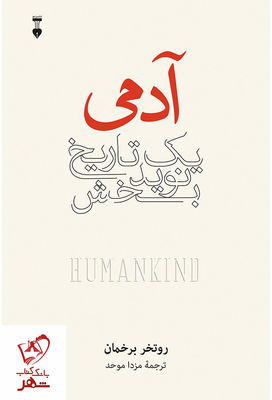The book has been translated into Persian by Mazda Movahhed.
If there is one belief that has united the left and the right, psychologists and philosophers, ancient thinkers and modern ones, it is the tacit assumption that humans are bad. It’s a notion that drives newspaper headlines and guides the laws that shape one’s life. From Machiavelli to Hobbes, Freud to Pinker, the roots of this belief have sunk deep into Western thought. Human beings, are taught, are by nature selfish and governed primarily by self-interest.
Bregman provides new perspective on the past 200,000 years of human history, setting out to prove that man is hardwired for kindness, geared toward cooperation rather than competition, and more inclined to trust rather than distrust one another. In fact, this instinct has a firm evolutionary basis going back to the beginning of Homo Sapiens.
From the real-life Lord of the Flies to the solidarity in the aftermath of the Blitz, the hidden flaws in the Stanford prison experiment to the true story of twin brothers on opposite sides who helped Mandela end apartheid, Bregman shows the readers that believing in human generosity and collaboration isn’t merely optimistic, it’s realistic.
Moreover, it has huge implications for how society functions. When one thinks the worst of people, it brings out the worst in politics and economics. But if one believes in the reality of humanity’s kindness and altruism, it will form the foundation for achieving true change in society, a case that Bregman makes convincingly with his signature wit, refreshing frankness, and memorable storytelling.
Bregman has published five books on history, philosophy and economics.
His books “Humankind” and “Utopia for Realists” were both New York Times Bestsellers and have been translated into more than 40 languages. Bregman has twice been nominated for the prestigious European Press Prize for his work at The Correspondent.
Source:Tehran Times

